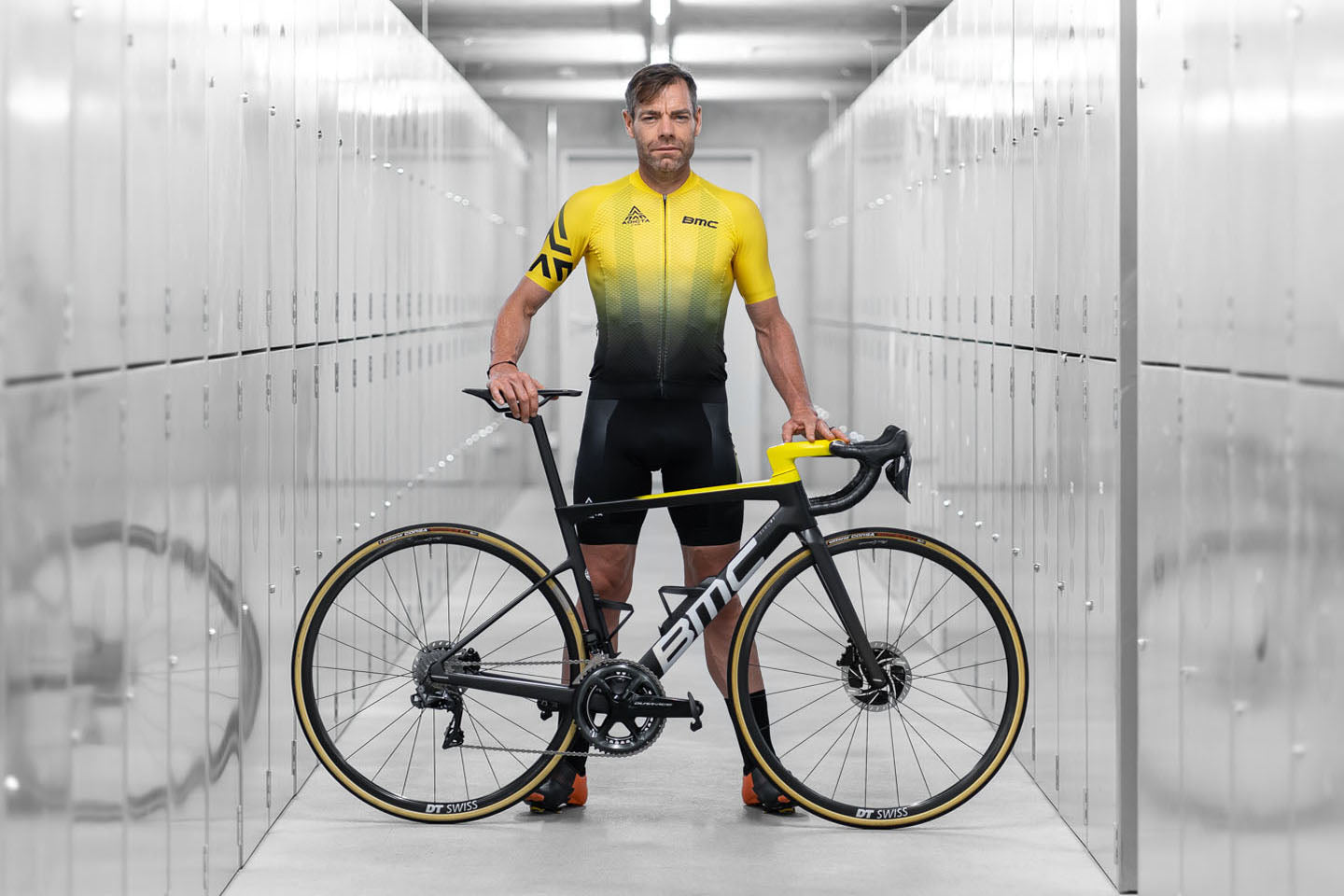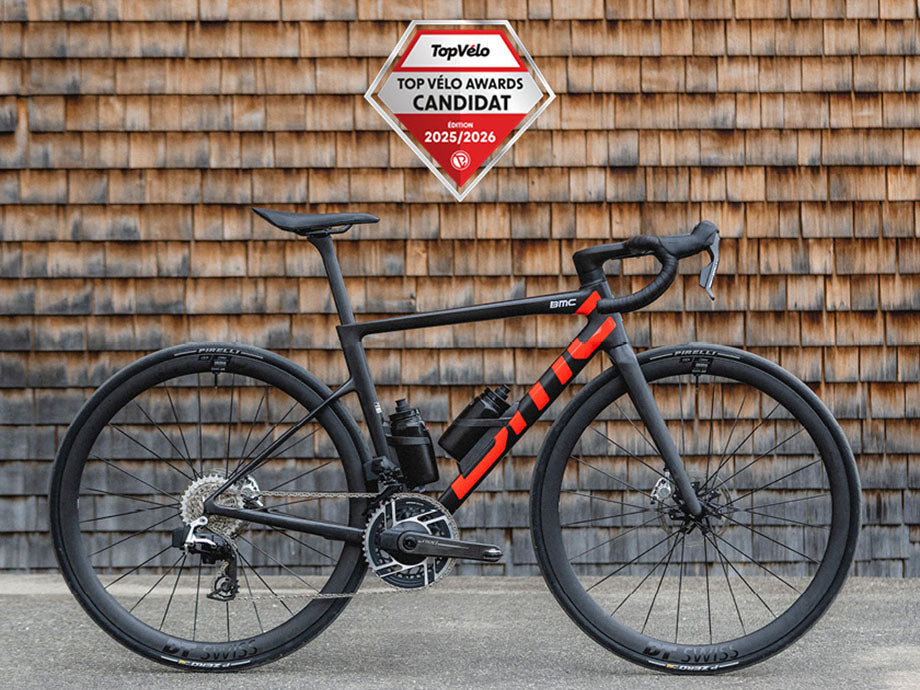Coming back stronger from being overtrained: Anna Kollmann-Suhr opens up about impactful time

Anna Kollmann-Suhr has been back on her bike for one week now. It hasn't been an easy task, given the year she has experienced. It took a long time before sports physicians diagnosed her with overtraining syndrome, which prolonged the difficult physical and mental period she was going through by many months. Kollmann-Suhr opens up with her cycling partner BMC to discuss the cause of her struggles, how she is coping with the situation now, and the future of her cycling career, hoping to help others in similar situations by sharing her personal story.
BMC / Sjors Beukeboom: Looking back at the period before the diagnosis, what do you realize now that you felt (and maybe ignored)? Did you notice any early warning signs in your performance or mood that you now recognize as potential red flags?
Anna Kollmann-Suhr: Definitely. It had been building up for a long time, so the signs were subtle at first, but the biggest one was my motivation to ride gradually declining. Cycling slowly became a task to check off the list rather than something I looked forward to—something I never would have believed could happen. I love riding my bike, and it used to be my greatest source of joy and energy, so looking back now, that should have been a huge red flag.

I also started getting sick more frequently, and over time, a lasting exhaustion set in. No matter what I did, the fatigue only seemed to worsen. My muscles felt sore all the time, and I didn’t see myself improving. I needed to take breaks from riding, and those breaks became increasingly longer. In hindsight, these were all clear signs that something wasn’t right, but I was so focused on pushing through that I ignored them at the time.
BMC: What do you think caused your overtraining? Can you pinpoint any specific decisions or moments where you now believe you should have acted differently?
AKS: I think it stemmed from a mix of stubbornness and a lack of understanding. I made decisions driven by the belief that more training would lead to better results, even when I was told otherwise. I pushed through workouts when I was exhausted, showed up to start lines even when I was beginning to feel sick, and didn’t give myself proper rest off the bike either.
I didn’t allow myself to skip workouts, and I would push through tiredness, convincing myself it was all in my head. I guess I confused commitment with stubbornness. I believed that if I just kept pushing, everything would work out, even when I was already feeling burnt out. Instead of taking the necessary rest, I increased the intensity, which ultimately led to overtraining.


I also think a contributing factor was my fixation on weight loss as the key to success. There was a period a while ago when I was riding a lot, and I was leaner and faster than ever, so I held onto that experience and tried to recreate it at all costs, even when it wasn’t sustainable. I’ve learned that comparing yourself to others is one thing, but comparing yourself to your past self can be soul-crushing.
BMC: Can you describe the process of getting diagnosed with overtraining syndrome? Was it straightforward, or did you encounter challenges in identifying what was wrong?
AKS: It was far from straightforward. I searched everywhere for answers, never considering overtraining, even though it was right in front of me. At first, I suspected something simple like low iron, which had caused fatigue for me before. But that wasn’t it, so I found myself going from specialist to specialist, undergoing a variety of tests—from in-depth blood tests to a complete heart check—hoping to pinpoint the cause, but with no success. On paper, I was healthy, but I didn’t feel that way at all. As the fatigue lingered, I felt lost. I gave up searching for a little while.

Eventually, on a friend's advice, I sought out a specialist sports physician who listened to my story and reviewed all my health data in depth. That’s when I finally got my answer. What looked normal to a general physician actually revealed a pattern of imbalance. Hearing the diagnosis, humbling as it was, felt like a huge relief. The doctor gave me a timeline of 2 to 6 months before things would return to normal.
BMC: How do you currently cope with it physically?
AKS: A lot of rest. Since it took so long to figure out and I kept getting sick back-to-back for a while, I ended up taking a significant amount of time off from sports. I was told my racing season was over, so after swallowing that hard pill, I decided to do a complete reset—and it actually felt good. I didn’t want to give myself a timeline to get back on the bike because this was about more than just physical overtraining; it required mental recovery too.
BMC: How do you deal with it mentally?
AKS: At first, not very well. It was pretty tough adjusting to life without training and I spent more time than I'd like to admit blaming myself for getting myself into this situation. On the flip side, the forced break also gave me the opportunity to check in with myself and focus on my mental health. Ultimately, this experience has been a massive learning opportunity, and I believe I’ll come out of it much more mentally resilient than I was before.
BMC: How does your daily routine look now?
AKS: Rest was the No. 1 priority. I’m answering these questions after my first week back on the bike. I wake up early, have my breakfast and coffee, then head to work for the day. In the evenings, I hop on my bike for a low-intensity, two-ish-hour ride, focusing on finding fun roads, scenic spots, or a bit of single track—anything to remind myself of what drew me to the sport in the first place, rather than worrying about how much fitness I’ve lost.

Before this week, however—for the last 3 months—my routine was pretty simple. I’d wake up, go for a 30-minute walk, have breakfast, go to work, and leave the evenings open for friends, cooking, moving apartments, reading, etc.
BMC: And your sports routine?
AKS: It’s fairly passive. I still have recovery at the forefornt of my training. So I mostly tune in to how I feel each day and go from there. I’m focusing purely on getting out consistently and having fun without worrying about speed or intensity. Some days that means a 2-3hr base ride with a focus on skills or a social ride with friends, some days it’s an easy run or hike, some days it’s just getting out the door for a walk. It’s very flexible and feeling dependant. Once I start feeling consistently better, I’ll slowly start integrating more structure again. Until then a slow re-entry is absolutely key. The racing season’s over for me, so it’s all about building a solid base for next year.
BMC: Looking back, what would you have done differently?
AKS: Oh, so much. But honestly, I think I needed to learn my lesson the hard way. In an ideal world, I would’ve gone to a sports physician sooner. Before that, I would’ve listened to my body when it told me it was exhausted. I would’ve communicated more with my coach, skipped or adjusted the odd workout, and viewed training as something more flexible, not rigid. I would’ve started addressing my relationship with food earlier. Hindsight is 20/20, as they say.
BMC: What is your tip for other athletes to avoid getting overtrained?
AKS: I’m not qualified to give tips, but if it were me, I’d say if you once loved a sport and start noticing that love fading, it’s worth taking a step back to check in with your habits.

BMC: Are you going to approach training differently from now on?
AKS: Definitely. I’m going to view it as part of my life, not something that dictates my life. I’ll be listening to my intuition more and trusting my body. I think I’ll work with a looser training structure rather than rigid daily sessions. I’ll reduce my hours as long as I’m working, and I also want to incorporate a little more diversity—like running.
BMC: Do you think there is enough education and awareness about overtraining syndrome among athletes and coaches? What could be improved?
AKS: Not really. I’m sure there’s a lot of information for people who are already well-versed in the sport, but if you’re new to training, it’s easy to see what experienced athletes are doing and think you can jump in at their level. That’s a recipe for burnout. The more people share their personal stories, the better. Especially with the influx of people joining the sport and getting insight into the training and lives of professional athletes on social media.
BMC: What goals motivate you to come back stronger?
AKS: I have so much unfinished business. But mostly, I just want to come back, do it right, and keep this amazing sport as a part of my life until I’m old and sitting on a rocking chair on the front porch.
Pics: Simon Krenk





